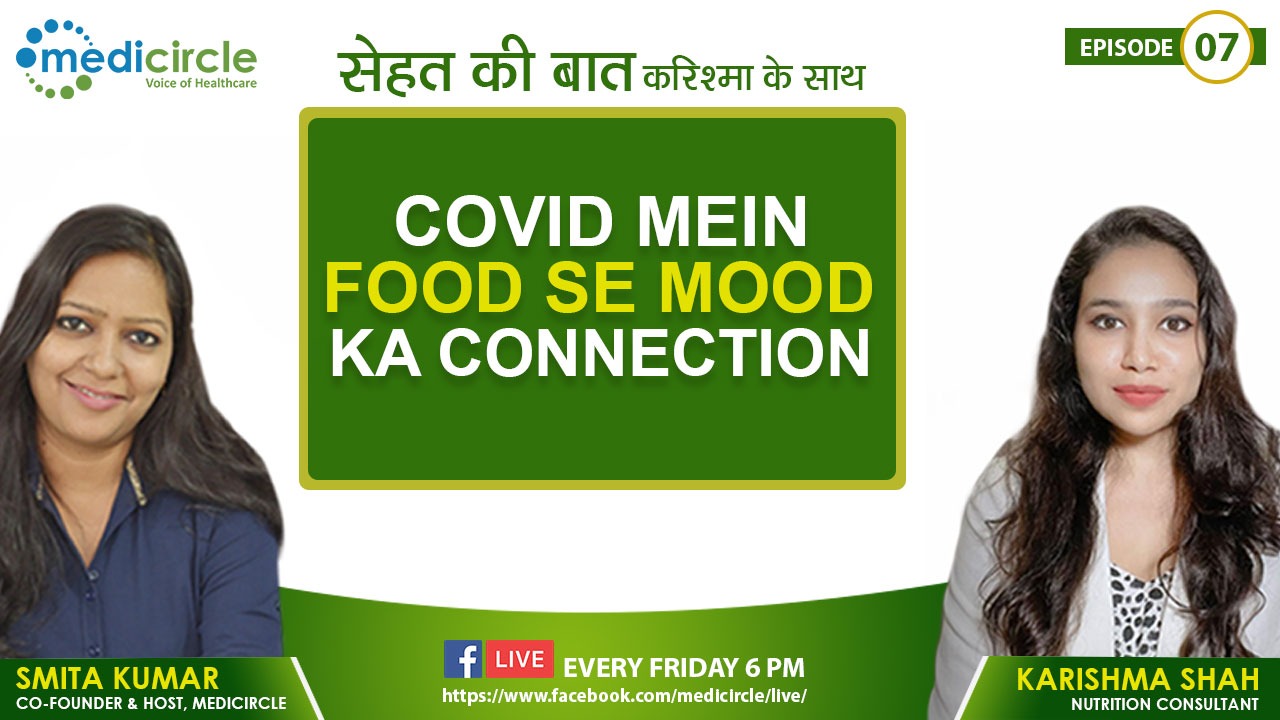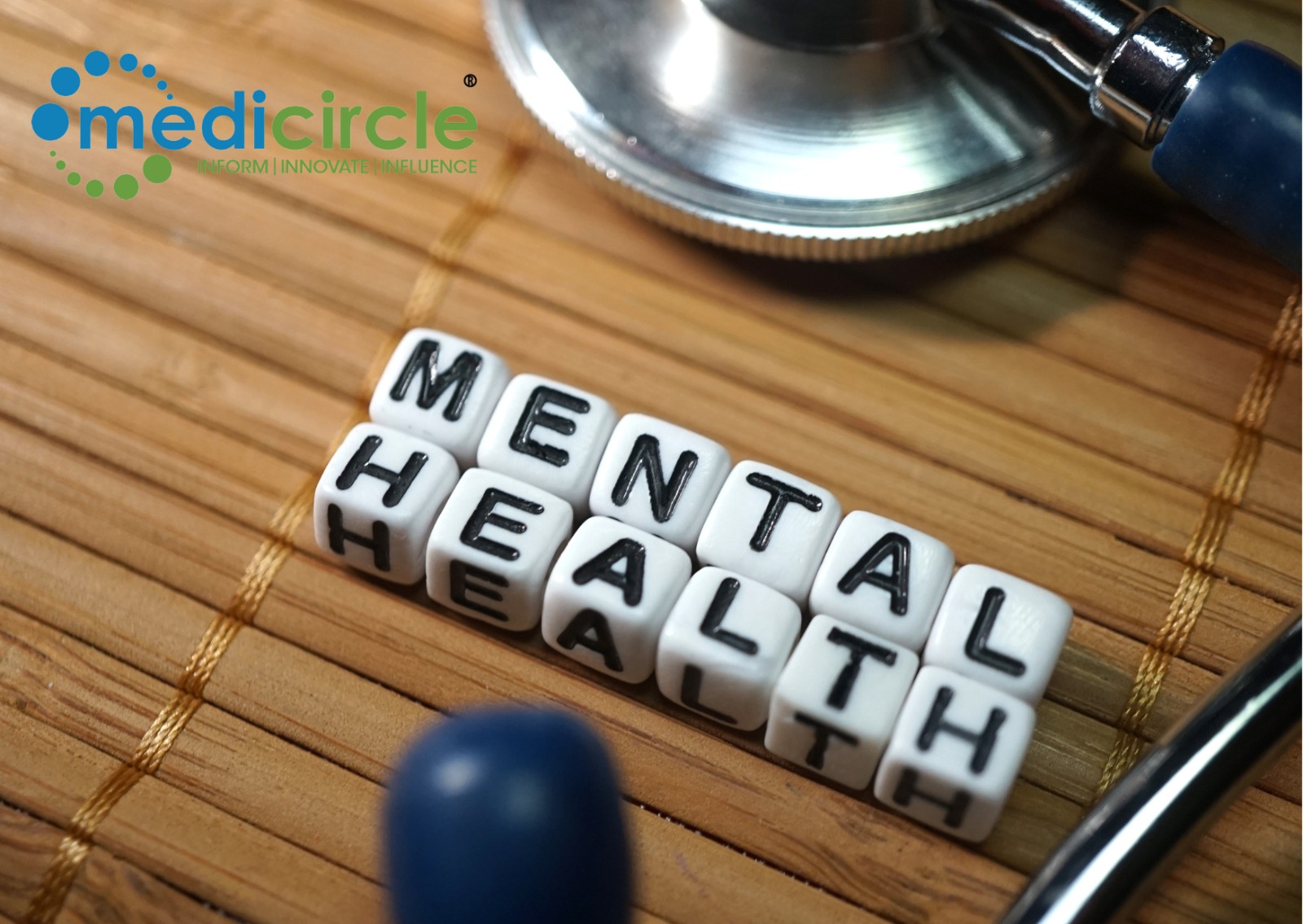Food is not only important for our physical growth but also for our psychological well-being. In other words, food definitely triggers our moods and overall well-being of the health. At Medicircle, we are presenting the Ask The Expert Series for health awareness to understand facts and find solutions related to them. We have come up with the series of Sehat Ki Baat, Karishma Ke Saath. Let’s interact with Expert Karishma Shah about some valuable food tips for mental health.
Karishma Shah is a Renowned Nutritionist and Plant Diet based Food Coach. She is also a Weight Loss Expert, Diabetes and PCOS Educator & Certified in Psychology of Eating
The connection between our food and mood
Karishma Shah says, “Our digestive system or gut health is the second brain of the body. It is directly connected to the nervous system. It is important to eat the right food to maintain your healthy gut. What you eat definitely makes a lot of difference in the way that we think.”
Overeating can affect mood
Karishma says, “Overeating occurs due to the associated problem. If we have an erratic routine with wrong sleeping habits, it affects our hormonal health. We have “appetite hormone” that signals us how much we need to eat and the kind of food that we crave is very essential and directly connected to our mind. Irregular sleep, lack of exercise can lead to fatigue, exhaustion, and weakness which makes us crave foods. This results in the over-consumption of caffeine. This gives us a piece of evidence of how your mind needs things and your body just is in compliance to provide it. The imbalance of hormones leads to overeating.
Undereating is not good for your health
Karishma states, “Undereating is also a problem. A lot of people purposely do not eat a lot of food because of fear of weight gain. If you don’t consume the desired amount of calories that your body needs, it can affect your vitality. Skipping meals can lead to undereating and can eventually lead to bad health. Three months after lockdown, many clients complained about the change in schedule timings. Many of us indulged in overeating during the COVID lockdown and then later to compensate, we started with undereating. Undereating and overeating are not good for us.
Taking charge of our own health is very important
Karishma informs, “Depression is a big thing now. Two to three years back, nobody spoke about depression. But now it is very rampant because everybody is suffering from it due to COVID. Mental health is a big topic now. If you want your mental health to be balanced, it is important to eat the right food, at the right time and exercise well. People who have depression cannot take care of themselves. It is important to take care of what you eat and consume every day. It is very common with women to be “giving” in nature. They will put their family first. For good mental health, take responsibility for your own health first and do not be dependent on anybody. You are responsible for your health and overall well-being. So if you take charge showing up yourself, you will see a major change in your mental health. Start getting your diet in place. If you have the knowledge, start implementing those tips. If you don’t have one, you can reach out to a nutritionist, dietician, or doctor for a good nutrition regime. Once a diet is taken care of, major changes start to happen. Exercise comes in with a serotonin rush of “feel-good hormones” after a workout you can feel fantastic. With the correct diet, the cycle starts for a healthy lifestyle.”
Healthy diet regime by the expert
Karishma states, " Healthy diet regime should include the following:
Fruits: Make a habit of eating 2 fruits a day. Fruits have anti-oxidants, vitamins, and minerals. 80% of people are deficient in vitamins and minerals. Consuming 2 fruits a day will help fill up the gap of nutritional deficiency.
Nuts: Nuts are very important like almonds, walnut, and pistachio. Consuming nuts in limited quantities every day will help us to deal with our nutritional deficiency. Incorporate a handful of nuts every day
Vegetables: Eat 2 servings a day is mandatory.
Start with these things will ensure that you are on right track. The absorption of the antioxidants, vitamins, minerals, omega good fats helps in releasing the “feel-good hormones” in our body."
Emotional and stress eating
Karishma says, “COVID has led to the isolation and many feel lonely due to lack of interaction. This has led to the ordering of unhealthy foods like pastry and ice creams to feel good. Sugar has the property of making us feel good. Sugar is a “drug” that cheats our body to feel happy. The dopamine rush happens with the consumption of sugar and junk food. This leads to cravings which makes us feel happy every day. This is emotional eating where your mind goes out of control with the cravings. The good news is becoming conscious can help eliminate emotional eating. A lot of effort is involved to eliminate it. Counseling and educating people is important. Food is important to nourish your body but not your emotional support in life” says Karishma
(Edited by Dr.Rati Parwani)

 What you eat definitely makes a lot of difference in the way that we think†says Karishma Shah, Nutritionist, and Plant Diet-based Food Coach. She informs how mental health is directly connected to the food we consume.
What you eat definitely makes a lot of difference in the way that we think†says Karishma Shah, Nutritionist, and Plant Diet-based Food Coach. She informs how mental health is directly connected to the food we consume.




















.jpeg)

.jpeg)










.jpg)




.jpg)

